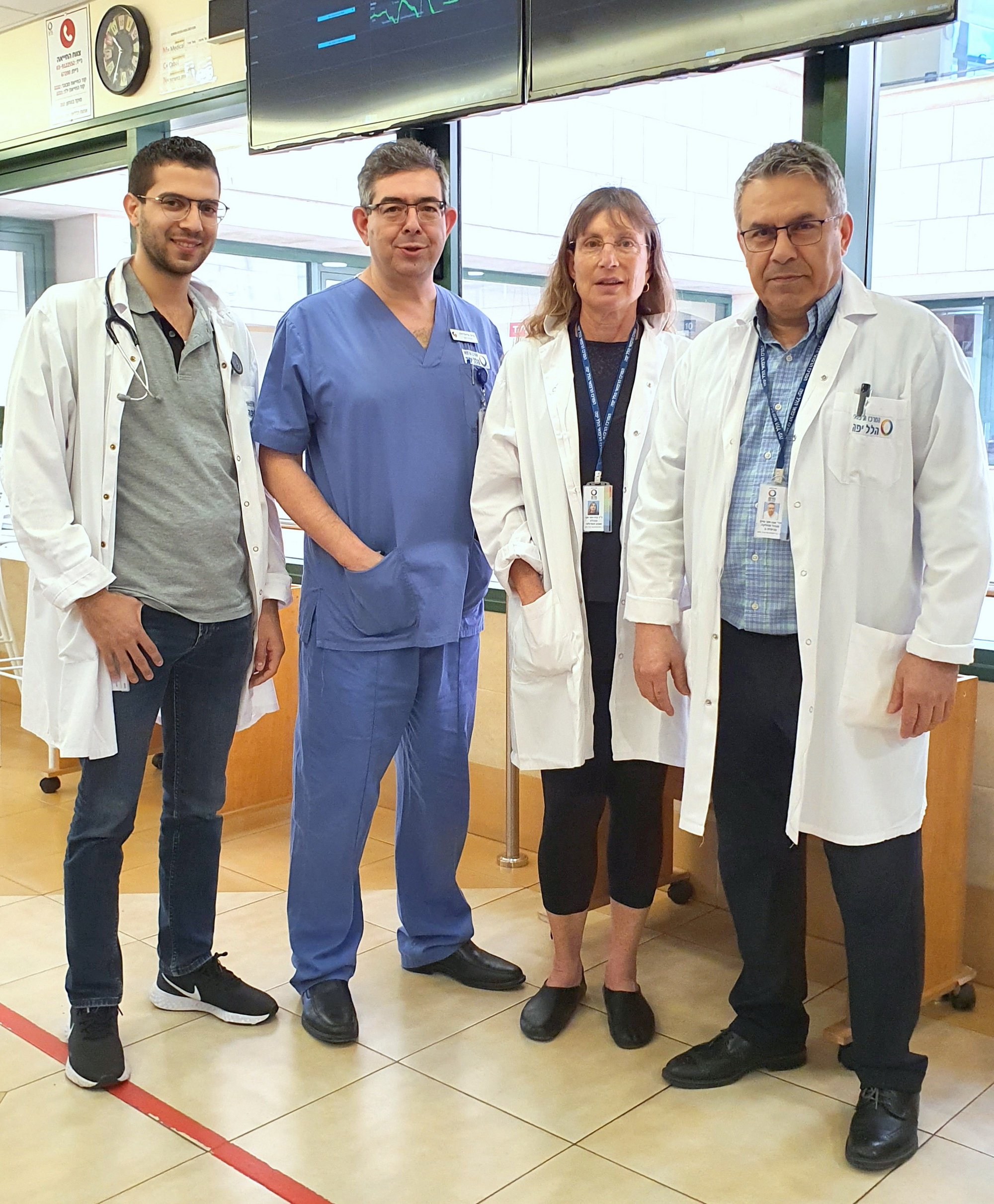Following publication by the Ministry of Health of a possible link between myocarditis and the coronavirus vaccine – a study carried out at Hillel Yaffe Medical Center and published this week in the international medical journal, Vaccine, indicates a connection between the coronavirus vaccination and myocarditis in young people.
Director of the Internal Medicine B department at Hillel Yaffe Medical Center and research leader, Dr. Sayaf Abu-Moch explains that, “These are initial findings, they need to be taken seriously and we need to continue examining the issue. It is important to note that these were cases of relatively mild and treatable forms of the disease. It is still of upmost importance to get vaccinated.”
Arrived in the Emergency Room with chest pain soon after receiving the second vaccine
The study, led by Dr. Abu-Moch, together with the Director of the Nephrology Institute, Dr. Noa Yannai, and Director of the hospital’s Cardiac Division, Prof. Ariel Roguin, examined six young patients, all of them men with a median age of 23, who came to the Emergency Room due to chest pain, typical symptoms and changes in the ECG trace, two to four days after being given the second vaccination against coronavirus.
“In light of the typical symptoms of the patients and being soon after the vaccination, we decided to hospitalize them for further clarification. Likewise, we would note that they were all in mild condition,” emphasizes Dr. Sayaf Abu-Moch. “After extensive testing which included an echocardiogram, MRI of the myocardium, a CT, and comprehensive blood tests including for the various proteins of coronavirus, an undisputed diagnosis of myocarditis was made. Not something dangerous, but definitely something which needs comprehensive testing taking into account that we were at the height of the vaccination campaign.”
Most patients were quickly discharged
The results were shared in real time with the Ministry of Health, which gathered all the cases in Israel. In the study published last week and which underwent comprehensive criticism by the greatest world experts before being published in the aforementioned medical journal, Vaccine, the sudden accumulation of hospitalizations was examined as compared to the number of hospitalizations for people with myocarditis at the Hillel Yaffe Medical Center in recent years. It emerged that during the past five years, on average, one patient had been hospitalized each month.
Director of the Cardiac Division, Prof. Ariel Roguin, explained that all the young patients were treated with painkillers and anti-inflammatory drugs, and their condition had quickly improved. They were released after several days. Most are not expected to suffer from long-term health implications; their follow-up continues.
From this perspective, both Prof. Roguin and Dr. Abu-Moch emphasize: “It is significantly important to have the coronavirus vaccine, since the repercussions of the disease on the body and cardiac functioning can be far more serious in patients with coronavirus. From this perspective, the benefit from the vaccine and the importance of protection from coronavirus among adults are far more important than the small risk of myocarditis, which is usually a mild illness.”
Director of the Nephrology Institute at Hillel Yaffe Medical Center, Dr. Noa Yannai, explains further that according to the reports collected by the Ministry of Health, there were over 200 cases of myocarditis in Israel in recent months among those who were vaccinated against coronavirus (COVID-19). This number is small when compared to the size of the population who were vaccinated, but the fact that most of the cases occurred among young people who had received the second vaccine is irregular and indicates a possibility of a link to the vaccine.

The team of researchers. Left to right: Prof. Ariel Roguin, Dr. Sayaf Abu-Moch, Dr. Noa Brar-Yannai, and Dr. Elias Hellou
The European Medicines Agency (EMA) and the United States Centers for Disease Control and Prevention (CDC) are examining whether there is a link between the coronavirus vaccine and the cases of myocarditis. From the time when the first vaccine was approved in December 2020, over 1,800,000,000 vaccine doses have been given from all manufacturing companies worldwide, and over 418,000,000 people have been fully vaccinated. In the United States alone, this vaccine has been given to around 5,000,000 young people, aged 12-17. The figures for follow up for the safety of the vaccine worldwide indicate a good safety profile, and meanwhile there has not been an irregular incidence of myocarditis following the vaccine.
Dr. Abu-Moch emphasizes: “The findings must be examined with caution. They are possibly secondary to the coronavirus vaccine. Myocarditis and pericarditis are relatively common disorders. They can appear after a viral infection or for other reasons, therefore they can suddenly flare up in a healthy person. The incidence of myocarditis among the population of the USA היא is 10-20 cases per 100,000, and most patients are young and were healthy before the incident.”
The three agree that the existing information indicates high-level safety for the coronavirus vaccine, but there is a question regarding a possible link to the vaccine and an increased risk of myocarditis, particularly among young people. It would seem that the risk is one in several thousand, and the reports show that most cases are not severe. The conclusion is that the data needs to be examined in Israel and worldwide so as to determine if there is a certain link between the cases and the vaccine, what is its exact size, and how severe it is. The answers that will be received will have consequences on the recommended policies for vaccinating young people.